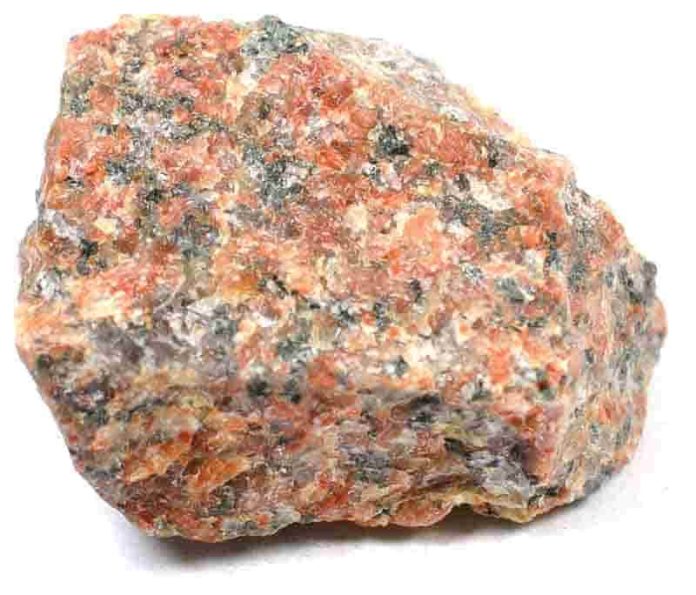The US has no issue with the metric system, and most engineering and scientific people switched decades ago. The military is mostly all metric too. The general public of the US is a harder nut to crack, asking a population of stubborn freedom lovers to change something they’ve known their whole life is damn near impossible.
I switch my stuff to metric all the time, and the usual response isn’t “oh that’s interesting”, it’s nearly always, “the fuck is wrong with you, why would you want that weird shit?!”. If the government suddenly made all weather reports metric, the T-Shirt sellers would all become millionaires overnight from selling anti-metric slogans.
So, what I’m hearing is to get some dropship tshirt designs, and get AI to publish a load of articles about how Dems are pushing metric…
Damn, why do I have morals?
“Don’t give them an inch”
These anti-metric slogans practically write themselves.
Swap either:
- Dems for Reps, or
- metric for imperials
- . . .
- Profit
Americans: go pick up the closest consumer packaged good within reach. You will find it is labeled with metric.
It would be nice to get highway signs in both units, though with Google maps obeying whatever’s selected in your settings, that matters less than ever. Some woodworking stuff is just too far gone down the imperial hole and will never come back. But other than such odd niches, you can live a metric life in the US without much trouble.
Americans: go pick up the closest consumer packaged good within reach. You will find it is labeled with metric.
Yes, but that’s likely because they want to sell it in Canada without changing the packaging design, isn’t it? Even if they have to put French on the other side for Canada, it’s cheaper in terms of development to have a single English design for both the U.S. and Canada, so it will be labeled in both Imperial and metric.
I thought it was because of China, but hell, all manufacturing probably occurs in metric.
Americans use metric system for measuring bullets
And drugs!
And 2 liter bottles of soft drinks.
Some bullets if they are nato standard or originated in europe. But other wise it can be based in inch or how many round balls you can make by dividing one pound of lead
That last one doesnt even make sense. Do you have any info on that? Im curious now
If the caliber is given in gauge or bore its the pound of lead i think. So a 12 gauge shotgun is the diameter of 1/12pound lead ball
Muzzleloading rifles have their own hunting season, and reenactors go hard.
Not just muzzleloaders shotguns are based on dividing a pound of lead
Many videogames are in metric too. Battlefield and many other games use it.
No? Caliber is based on the inch
I’m far from a weapon expert, never held a real firearm in my life, but 9mm bullets are a thing, no?
I’m fairly sure there will be a lot inch-based calibers as well; but one of the most known calibers has mm literally in the name.
(and I know there are e.g. the .50 Magnum appearing in many movies/games; which is based on inch; but I would say less iconic than a 9mm; at least in the kind of movies and games I grew up with)
Technically, the inch is defined by the meter, so it’s all SI.
Could be argued 44 magnum and 45 acp are more iconic than 9mm luger but the americans also uses the mm for 5.56 and 7.62 wich are nato standards. Funnily enough they dont extend this too the 50 bmg wich is called 12.7 where im from.
Caliber can be based on a lot of things. Gauge and bore for exampel is based on the mass/volume (density?) of lead
I try to use metric as often as possible. I measure everything in millimeters in grams. I still haven’t switched over to Celsius completely yet but I’d like to.
I lived hear my entire life and I still can’t make sense of the half assed fluid measurements. I just use metric, because what the fuck is a fluid ounce?
To answer your question, 1 fluid ounce is the volume of 1.0431755565 mass (weight) ounces of pure water.
1.0431755565
I literally have no words for my seething hatred of this system.
Don’t get me started on the damn mile. There’s a reason we tell distance in time it takes to drive.
5 fluid ounces to the gill. 4 gills to the pint. 2 pints to the quart. 4 quarts to the gallon. And 1 gallon is 10 pounds of water.
Except in the US. For us, it’s 4 fluid ounces to the gill. 4 gills to the pint. 2 pints to the quart. 4 quarts to the gallon. And 1 gallon is 8 troy pounds of wine.
…I imagine you’re being serious, but as someone unfamiliar with this, it reads as almost being some kind of obscure joke. Gills?? Troy pounds??
This is some merfolk conspiracy to mess with landfolk, far as I’m concerned.
That’s great and all. But by measuring everything in millimetres and grams you miss out on the very thing that makes the metric system great; the easy conversions. You can measure things in millimetres and easily switch to centimeters, just by moving the decimal sign, when the measurement gets large enough. That way you can almost always keep the numbers manageable. No need to say 1500 millimetres. Just say 1,5 m.
Yes, the metric system is quite great
Weight as well. One liter is exactly 1kg of water. In precipitation (rain amount) 1mm is exactly 1l or 1kg of water on 1m². So when they say there will be 8mm of fall, that’s expected around 8l per square meter which is quite intuitive.
I still like the feel of feet/inches for length, but grams are way, way better for cooking and meal tracking.
Celsius is pretty easy. You probably like 20c inside year round. The high teens to mid 20s are comfortable. 13c and below is quite cold. 25c and up is quite hot.
If you use a PC, your temps are probably 30-85c, which is an easy way to learn too.
“30 is hot, 20 is nice, 10 is cool, 0 is ice” is a good way to learn human temps.
My recommendation, just set your phone/watch/thermostat to C. You’ll learn it within a few weeks of cutting over :)
I love how americans have ambient temp in F and computer temps in C.
Just like how we sell milk in gallons but soda in liters.
deleted by creator
Haven’t watched the video, but as someone who works in industry in the US I think the consumer side of a metric switch is the lowest barrier to entry. A much bigger hurdle is the fact that almost all of our raw industrial inputs are built on the imperial system. Need to buy raw plate or bar stock to have something built? It’s sized in imperial. And if you want to source metric you’re either going to have to pay more for it or look outside the US. And after that raw stock is purchased and you send it to a machine shop that machine shop is almost certainly using exclusively imperial tooling and measurement equipment. You can do the fake metric thing that some companies do where you dual dimension all of your drawings, but those companies will usually still design to imperial so their parts can be fabricated in the US.
I’m absolutely not opposed to a switch to metric. I still perform most of my calculations in metric and then convert to imperial just for ease and because that’s how I was taught in school. But it’s certainly much more difficult than just deciding one day that we’re all going to switch.
This is the most valuable comment. I use metric everyday, but I can’t magically change that my house was built in imperial.
heres my question. What do they use for a wood 2x4 in metric countries? And does the size actually match the name (unlike the US).
90mm x 45mm is what’s available near me for framing timber. And yes it’s more accurate.
Millimetres in general are used heavily in construction, everything is stated in them, even into the thousands where people normally would have switched to metres.
Millimetres in general are used heavily in construction, everything is stated in them, even into the thousands where people normally would have switched to metres.
Similar thing in the US but with inches vs feet. In framing, no one would ever call for a “3 foot 2 and a half inch block,” it’s just “38 and a half”
One yard two and a half inches.
This unreasonably upsets me. Haha
America: Our shit doesn’t make sense and we like it that way.

Every time a Europeasant makes fun of it, we add a new kind of standard measurement.
(While the important stuff is done in metric)
As I see it, the problem is that for the vast majority of people in the U.S. there is no compelling reason to change. People rarely need to convert units and rarely (but more often thanks to social media) need to talk to anyone who uses metric. I see it as a cultural quirk not unlike a dialect.
Of course for science, industry, and other situations where conversion, accuracy, and international communication are involved it very much matters and U.S. needs to use metric as much as possible.
It would be an easy switch for me outside of speed and temperature.
I think farenheight makes the most sense when it comes to describing a comfortable temperature. Baking , computers, and what-not, celsius makes more sense.
Speed, well, that’d take me a long time to get used to.
Measuring for home projects and the like wouldn’t be difficult as I had already made that switch at my last job.
Removed by mod
I just think of it like this. 0 is fucking cold, 100 is fucking hot. It’s the easiest for me to describe comfort levels according to temperature.
72 is room temperature, so anything above, it’s time to start taking clothes off. Anything below it’s time to start putting more on.
32 is around about where water freezes so if it gets close to that, time to make sure pipes are wrapped and plants are inside. Only really have to worry about that one time a year though.
Celsius:
0 is freezing
10 is not
20 is pleasing
30 is hotIn metric you just look at the first digit:
0x is cold
1x is light jacket
2x is shorts weather
3x is hot
one time a year though.
One time… Like late November to early March.
I only have to worry about the change once a year as far as major things go. Which is what I was alluding to.
Comfort levels? I usually wear a hoodie with 1-2 layers down to 32, then my coat for everything below that with layers added the colder it gets.
I live in Michigan so the transition seasons are a crap-shoot on what you’ll need to wear that day anyways so I have to keep clothes in my car either way temperature is measured.
American living in Canada here. It took me a couple of months at most to get used to both. I still couldn’t give you an accurate conversion between metric and imperial, but my brain understands the metric units now. It’s just a matter of using the units in everyday life.
Speed and distance were probably the easiest ones for me. You set your car’s dash to use km/h instead of mph. Then you just follow the road laws like normal. If it says the speed limit is 100 km/h, you just don’t let the number on the dash go much above that. Or you just drive the same speed everyone else does like you do on American roads anyway.
Temperature was a bit more confusing, but you pretty quickly learn that you’ll be happy if you set the thermostat to 18-24 and that if the temperature outside hits 30, it’s going to be a hot day. That kind of precision is more than enough for your mind.
I genuinely used to think I’d have a hard time switching to metric for most things. In my mind, I’d always have to be converting things back to imperial in my head. But that just isn’t the way it works. You quickly just start to relate the units to the real world and you understand it pretty quick.
The speed thing would be difficult for me as I’m into car culture so with that I’m far too used to MP/H.
Speed limits and driving would be easy as I have a VW with nice clear gauging for both speeds and my info center I think can be switched over anyways.
Horsepower/torque numbers are also what the fuck. That might be a British thing though. What is the most common measurement for that outside the US?
The temp thing I still don’t think I could ever change. Not like I would do it in a way that would affect people.
I already use celcius as much I can outside of temp.HP is kiloWatt and lb/ft is Newtonmeter
kW=(0.105NmRPM)/1000 HP=(LbFt*RPM)/5252
Hahahs LbFt 😭
“Making sense” is probably a habit, but all the units in Si are made so they are easy to convert to and from. Temperature included. So there’s practicality tied to it. Just like 1l of water is also 1kg of water, which is also 1000cm³ of water. Same thing goes with temperature where Celsius is tied to transition states of the water, 0° for freezing, 100°C for boiling/gas. But it’s not as tightly related as other units and even more rarely used for conversion. For us in the Si world it makes sense because everything is in scales of 100 or 1000, with definite start and end.
Freedom units
There would be mass confusion if the US went metric.
Seemed to work fine everywhere else.
In the US it’d be attacked as un-American and as part of the “culture wars” the US right wing seem to imagine. The government would be attacked for taking away “freedom units”.
Electoral reform with proportional representation would be better priority so government can reflect the majority, and not the noisy fringes.
I saw a clip from probably Fox where someone made that point. He wanted to be able to use his grandma’s recipes for whatever and also noted that the metric system was creacted by revolutionaries, the implication obvious being the pride that North America has never had a single revolution, which is why you’ll see pictures of the king in every classroom and the union jack being flown everywhere in the colonies.
deleted by creator
I fully agree, but I think it is time to metricate on an individual level. Just live your life as metric as possible. Even in America life is easier using meters when you get a say even when you’re the only one doing it. We’re already halfway metric as is.
Whoosh
I dont think they get it.
There’s mass confusion now. It’s why industry by industry is voluntarily metricating. Most famously American aerospace used US Customary until a conversion error crashed a Mars mission.














